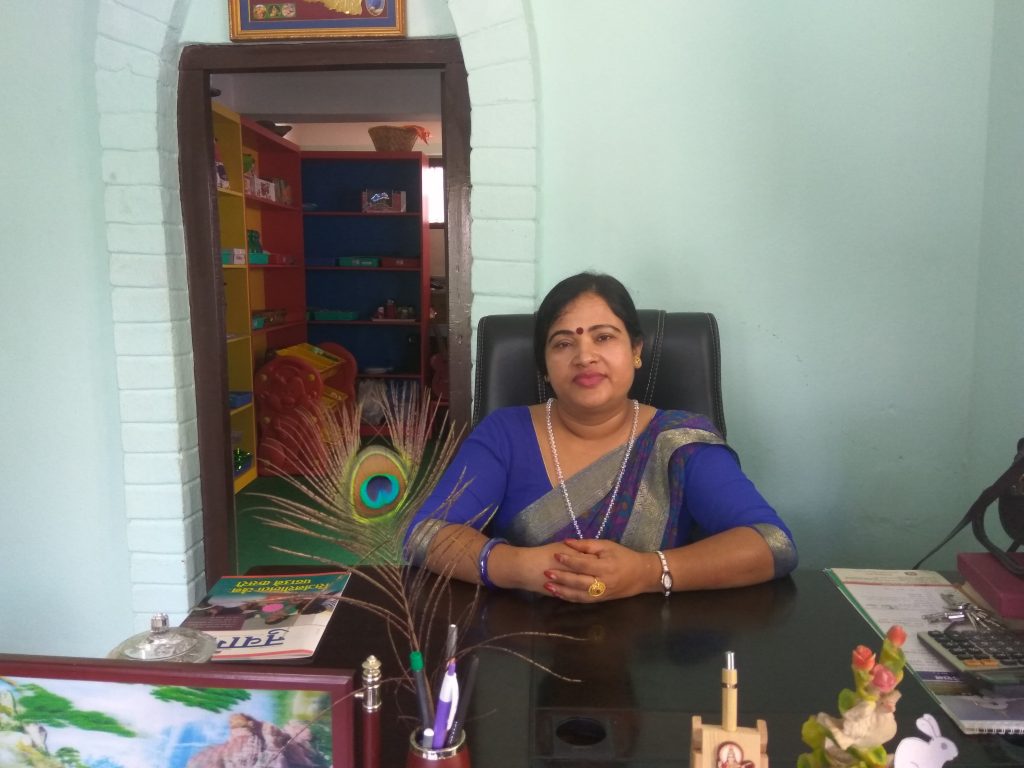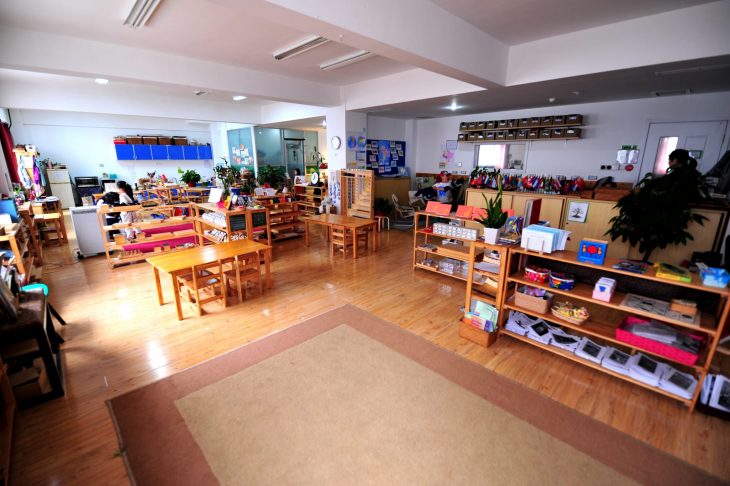It has been a while since Nepal is making a commendable progress in its educational development. From the accessible vocational training to the advance foreign degrees, there is a rapid growth in the number of educational institutions offering these services. The scenario appears similar in the case of Montessori schools where it’s popularity is growing immensely in the Nepalese society. Montessori education has been able to hold a strong spot by providing freedom-based and holistic approaches to develop the mental, physical, social and emotional growth of the children.
Pushpa Rijal, the Principal of City Montessori School has remarkably worked in the field of developing Montessori education in Nepal as a board member of Nepal Montessori Association. She is also a Teacher Trainer who did the Early Childhood Education Course. Glocal Khabar had a detailed interview with her to know the situation of Montessori Education in Nepal. Here are some snippets:
Glocal Khabar: Since you have been indulging in this field for a long time, please explain to us what is Montessori education?
Mrs. Rijal: Montessori Education is a child-centered educational approach developed by Maria Montessori that was introduced to develop the physical, emotional and social strength of the children. Generally, Montessori education can be given to different age groups using different techniques, however since it’s new in Nepal, most of the Montessori schools are limited to the pre-primary level. Usually, children are provided with specifically designed materials and syllabus that help them to explore their world and enable them to develop essential cognitive skills.

Glocal Khabar: As you mentioned about the syllabus, what is the curriculum of Montessori education in the context of Nepal? How does it help in the overall development of the children?
Mrs. Rijal: Recently we had a meeting of Nepal Montessori Association where we discussed the minimum standard and curriculum advancement of Montessori education in Nepal. We are in the process of advancing the existing curriculum as per the global caliber. Talking about the present scenario, we focus on the Sensual Development of the children. Till age 6, children are blank when it comes to their sense organ development and are a more active learner. So if nurtured properly, they can improve in many fields like socialization, communication skills, physical movements, and emotional intelligence.
Similarly, we also have Practical Life Exercise (PLE) that helps the children to cope up with day to day activities. PLE includes many micro attempts like how to wear own button or tie own shoelace. The 10 days spoon training trains children to eat their food themselves whereas the roti making helps in their eye and hand coordination. These all acts might be very small things for us but we can’t underestimate, how such small acts decides the future behavior of any individual. Likewise, we also have a Language course where we use Phonetic Sounds to teach the children. Instead of teaching rote learning, we encourage them to learn the pronunciation with phonetic sounds that make them more versatile and accurate.
Next comes, the Maths and Culture. Maths increases the logical skill of children by helping them to differentiate objects on the basis of color, texture, shape, and size. Whereas, culture enhance their knowledge about history and science. We also give a huge emphasis on teaching the Nepali Language.
Glocal Khabar: What is the main reason behind the rapid growth in the number of Montessori in urban areas?
Mrs. Rijal: The main reason would probably be the mass demand. We all are well aware that nowadays, parents are too busy. Since Montessori is providing better socialization, security and healthy foods, popularity among parents are growing.
Glocal Khabar: What are the main hurdles in this field nowadays?
Mrs. Rijal: I would highlight the previous point itself. There are so many Montessori in the country who neither have the proper infrastructures to support the child development nor they are offering the qualitative education. They still give pressure to the small minds to memorize rather than to understand. But that’s not how a child must be taught. Montessori is a playful system where children learn by playing different games like the snap game, domino and letter chain.
We agree that Montessori education is a bit expensive for any middle-class Nepali family, but the quality and services it beholds justifies the charge. However, the massive commercialization by a few Montessori makes it way too expensive. This creates a negative image in the society. Similarly, there is a problem in searching for skilled teachers for the long term. There is a tendency that after the training, some teachers quit their job to start their own Montessori. This creates a lot of problems in administration level.
Glocal Khabar: Could you please share your final remarks to the parents about Montessori education?
Mrs. Rijal: I just want to address the parents that we are still in the misconception that Montessori only teaches the alphabetical characters and numbers. But the fact is, it all depends on the institution. So please have a thorough research and choose the best fit. Investment in quality Montessori education shapes the bright future with a strong foundation of their children.
By: Ruby Shah







